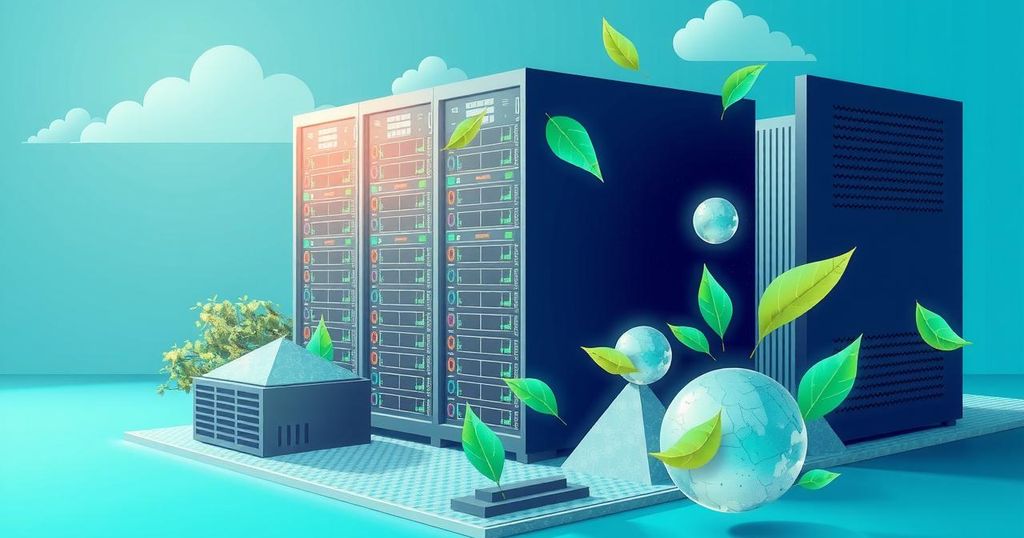Sam Altman’s Bold Claims About ChatGPT’s Resource Use Scrutinized
Sam Altman’s claims about ChatGPT’s low energy and water usage are under scrutiny. In a recent blog, he cited figures that seem overly optimistic and lack evidence. Calculations suggest that the actual usage might be much higher, raising concerns about the environmental impact of AI. As AI grows, addressing the implications on resources and climate change becomes crucial.
Sam Altman’s recent claims about ChatGPT’s energy and water usage have raised eyebrows in the tech community. In a blog post, he stated that each query requires merely about 0.34 watt-hours of energy—roughly what a high-efficiency lightbulb consumes in a few minutes. Furthermore, he mentioned ChatGPT’s water usage is an astonishingly low 0.000085 gallons per query, equating to about one-fifteenth of a teaspoon.
Yet, these figures aren’t backed by any references or data sources, leading to skepticism. Gizmodo attempted to reach out to OpenAI for clarification but hasn’t received a response yet. If we take Altman at his word, it then invites us into alarming math. OpenAI suggested that by December 2025, ChatGPT’s 300 million weekly users will generate a whopping one billion messages each day; that’s around 85,000 gallons of water used daily, bordering on over 31 million gallons annually.
ChatGPT operates from Microsoft’s data centers, which are known water guzzlers. In fact, these centers already faced issues with power and water consumption before AI even became a star player. A recent study from researchers at UC indicated that the previous GPT-3 model was consuming roughly .5 liters for every 10 to 50 queries. Assuming the most optimistic scenario, that would translate to about 31 million liters—or 8.18 million gallons of water every day. And keep in mind, that’s for an older model!
The model’s size directly affects its energy needs. Studies examining the environmental impacts of these AI systems reveal that as the AI grows and requires retraining, the electricity costs are expected to climb significantly. Altman’s blog doesn’t clarify the specifics of how much energy is consumed per query across different ChatGPT versions, especially the more advanced ones, like the pricier GPT-4o.
In his lengthy post, Altman blended tech optimism with vague promises of automated data center production supposedly leading to lower costs for AI. If we were to give him the benefit of the doubt, it seems he might mean that AI’s growth could offset some energy needs. Yet, the challenges of rising global temperatures remain a looming issue. Some firms are already exploring outlandish solutions like submerged data centers or even constructing nuclear plants to provide the necessary power, although those plans are still far from materializing.
Altman’s overall tone appears emblematic of the big tech firmly entrenched in its perspectives. He claimed that numerous jobs would vanish, but hey, that’s OK because the world would get richer swiftly enough to consider radical policies. Suggestions like universal basic income seem to pop up in conversations, though Altman doesn’t seem committed to championing them too earnestly unless it’s a means of curtailing AI regulations.
“Safety issues need our attention,” Altman admitted. However, he countered this by suggesting that expanding AI into all facets of life remains paramount. He paints an optimistic picture of AI actively resolving the climate crisis, but the reality is far murkier. With temperatures steadily rising, the energy and water demands on data centers will only rise, and one wonders if AI can keep up in time to address those mounting challenges. For now, Altman urges us to look away from the flames and focus on the next mysterious gadget destined to distract us from the world around us.
Sam Altman’s blog post raises questions about OpenAI’s narrative on the environmental impact of ChatGPT. While he presents seemingly low estimates for energy and water usage per query, the lack of evidence and context casts doubt on these claims. As the AI industry continues to expand, the reliance on water and energy must be scrutinized, especially in light of growing concerns over climate change. Ultimately, a deeper conversation about AI’s impact on society and the planet is needed, far beyond upbeat promises of wealth and job creation.
Original Source: gizmodo.com




